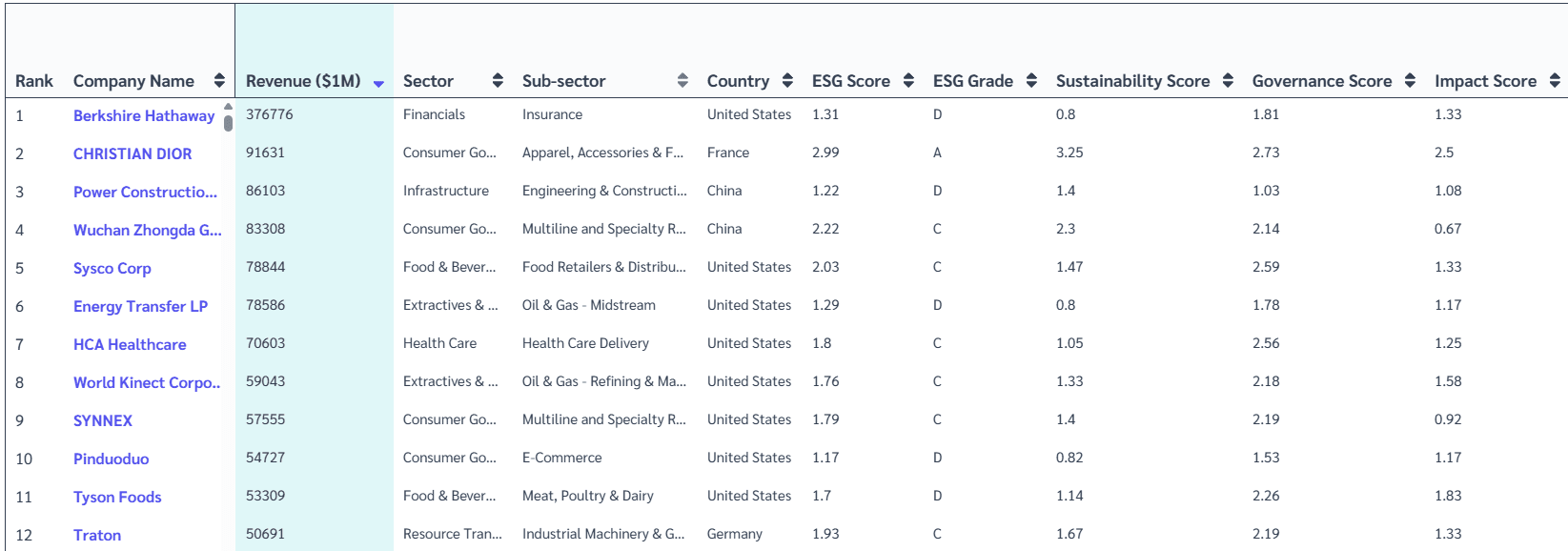

Harish joined the Business Development team at Integrum ESG after having previously overseen BD for the investment network Venture Giants, and also worked within the Customer Experience Program Team at Amazon. He has a BSc in Philosophy, Logic and Scientific Method from the London School of Economics and Political Science.
An up-to-date guide on California’s climate disclosure rules, what they require and why they matter for global asset managers and hedge funds. All future regulatory updates and amendments will be summarised at the end of this article.
California has enacted two key pieces of legislation - SB 253 (Climate Corporate Data Accountability Act) and SB 261 (Climate-Related Financial Risk Act). Together, they require large companies doing business in California to disclose greenhouse gas (GHG) emissions and climate-related financial risks.
A follow-on bill, SB 219, passed in 2024, introduced technical adjustments, but the main requirements remain set by SB 253 and SB 261.
For investors, these rules extend beyond California. Any company with significant operations or revenue connected to the state may fall within scope.
Update: A Ninth Circuit injunction has paused enforcement of SB 261, while SB 253 continues as scheduled. A full summary of the implications is provided at the end of this article. (Nov 2025)
1. Scope
SB 253 applies to companies with global revenues above US$1 billion, and SB 261 to those above US$500 million, if doing business in California.
2. Deadlines
SB 261 reports are due from January 2026. SB 253 reporting starts in 2026 for Scopes 1 and 2, and in 2027 for Scope 3.
3. Assurance
For SB 253 - third-party verification is phased in, with reasonable assurance for Scopes 1 and 2 by 2030.
4. CARB clarifications
CARB’s rulemaking process has been delayed to Q1 2026 to allow for further consultation and refinement. A draft Scope 1 and Scope 2 reporting template was published in October 2025, which will be voluntary for the first reporting cycle. CARB has also confirmed it will apply enforcement discretion during the initial years, focusing on good-faith compliance rather than immediate penalties.
5. Investor impact
Asset managers should evaluate portfolio exposure, anticipate disclosure requirements and expect some variability in reporting formats during 2026. Early adoption of CARB’s draft template will help companies align with final reporting requirements and establish best practice standards.
🔹 SB 253 (Emissions Disclosure):
Companies with over US$1 billion in global annual revenue doing business in California must report their full GHG emissions footprint (Scopes 1, 2, and 3).
🔹 SB 261 (Climate-Risk Disclosure):
Companies with over US$500 million in global annual revenue must publish biennial reports on climate-related financial risks and mitigation strategies.
Both public and private companies are covered. Insurance companies are exempt from SB 261.
CARB has published a Preliminary List of Reporting and Covered Entities, identifying approximately 4,000 companies that may fall within scope of SB 253 and SB 261.
📄 Preliminary List of Reporting/Covered Entities (posted 24 September 2025)
The list is non-exhaustive and intended to help organisations assess potential applicability - inclusion does not confirm obligation, and omission does not guarantee exemption.
🔹 SB 253 - Greenhouse Gas (GHG) Emissions Reporting
• Scope 1 and Scope 2 reporting begins with 2025 data, with first reports due in 2026
• Scope 3 reporting begins with 2026 data, with first reports due in 2027
• Reports must follow the GHG Protocol, the international standard for emissions accounting
• Companies may use CARB’s draft Scope 1 and Scope 2 reporting template (found here), published in October 2025, or another consistent format during the first reporting cycle as the template remains voluntary
• Independent third-party assurance is phased in - limited assurance from 2026, moving to reasonable assurance by 2030
🔹 SB 261 - Climate-Related Financial Risk Reporting
• Biennial climate-risk reports start 1 January 2026
• Reports must align with TCFD (Task Force on Climate-Related Financial Disclosures) or ISSB (International Sustainability Standards Board) frameworks
• Companies must disclose material physical and transition risks, governance structures and mitigation strategies
🔹 Penalties for Non-Compliance
• SB 253: up to US$500,000 per year
• SB 261: up to US$50,000 per year
• A safe harbour applies for Scope 3 disclosures where companies make reasonable good-faith efforts
• CARB will exercise enforcement discretion in the initial reporting years, focusing on good-faith compliance rather than penalties
The California Air Resources Board (CARB) is responsible for developing the implementing regulations for SB 253 and SB 261.
Recent proposals and workshops have clarified how the rules will apply in practice:
🔹 Revenue thresholds - measured globally
Total annual revenue will be assessed on a global consolidated basis, covering worldwide gross revenue across the consolidated group. This prevents companies from restructuring subsidiaries to avoid reporting thresholds.
🔹 Reporting entity boundaries - parent-level reporting
Consolidated parent-level reporting will generally be permitted if consistent with GAAP or IFRS consolidation. This avoids separate reports for each subsidiary.
🔹 Definition of “doing business in California”
CARB will rely on the California Franchise Tax Board definition, which uses bright-line tests for sales, property, or payroll in California. These thresholds are updated annually.
🔹 Templates and digital submission
On 10 October 2025, CARB published a draft Scope 1 and Scope 2 emissions reporting template for SB 253, open for public comment until 27 October 2025. The template will be voluntary for the first reporting cycle, covering 2025 data due in 2026, and is expected to be finalised later in 2026 as part of the broader rulemaking process.
CARB’s formal rulemaking process will conclude in Q1 2026, allowing additional time for stakeholder input and refinement of key definitions and templates.
CARB has also confirmed it will apply enforcement discretion during the initial reporting years, focusing on good-faith compliance rather than immediate penalties.
Official CARB resources: CARB Climate Disclosure Rulemaking Page
For a detailed breakdown of these refinements, Danesmead Advisory has provided a useful update on how the CARB's updates are shaping final implementation, which you can read here.
🔹 Scope is global:
Companies outside the US may still be required to comply if they do business in California.
🔹 Alignment with other regimes:
California’s rules are broadly consistent with the EU’s Corporate Sustainability Reporting Directive (CSRD) and the UK’s Sustainability Disclosure Requirements (SDR).
🔹 Portfolio implications:
Scope 3 obligations extend into supply chains, meaning portfolio companies could face indirect reporting pressures.
🔹 Risk assessment:
Investors should consider whether companies in their portfolios are prepared to comply and whether reported data is credible.
🔹 Disclosure quality and comparability:
Early disclosures under SB 253 and SB 261 may vary in format and level of detail until CARB finalises templates in 2026. Investors should monitor how companies adopt the draft reporting framework, as early reporters are likely to set benchmarks for best practice and influence market expectations.
The California disclosure rules reflect a wider shift from voluntary sustainability reporting toward mandatory climate disclosure in the US.
While differences remain between jurisdictions, there is clear momentum toward convergence of ESG reporting requirements across the US, EU, and UK.
For asset managers and hedge funds, this represents both a compliance consideration and a data opportunity. Companies will be expected to provide more consistent, verifiable information - which investors can use to assess risk, inform allocation, and engage with issuers.
The Integrum Platform has already identified 500+ companies with over $1 billion in revenue that fall within scope of California’s climate disclosure laws (SB 253 and SB 261) - a critical blind spot investors cannot afford to ignore.

Use our Screening & Reporting solutions to make your SB 253 & SB 261 reporting quick and painless.
ESG Intelligence which is fast, transparent and affordable - only on the Integrum Platform.
The California Air Resources Board (CARB) has announced several key implementation updates for SB 253 (Climate Corporate Data Accountability Act) and SB 261 (Climate-Related Financial Risk Act):
• Rulemaking delay: The initial rulemaking process has been pushed to Q1 2026, instead of late 2025, to allow for additional stakeholder feedback and technical refinements.
• Draft reporting template: On 10 October 2025, CARB published a draft Scope 1 and Scope 2 emissions reporting template under SB 253. The template is open for public comment until 27 October 2025.
• Voluntary first cycle: Use of the new template will be voluntary for the first reporting cycle (covering 2025 data, due 2026). Companies may submit disclosures in other compliant formats while the template is tested.
• Enforcement discretion: CARB has confirmed it will apply enforcement discretion during the early years, focusing on good-faith compliance efforts rather than penalties.
• Deadlines unchanged: The statutory reporting dates remain the same — SB 261 reports from January 2026 and SB 253 Scope 1 and 2 from 2026 (Scope 3 from 2027).
These updates introduce a phased rollout that will affect how quickly investors gain access to consistent emissions and climate-risk data, but they also reduce compliance risk for companies preparing initial SB 253 and SB 261 disclosures.
Sources:
CARB Climate Disclosure Rulemaking Page
ESG Today: California Delays Rulemaking for New Climate Reporting Regulations
On 18 November 2025, the United States Court of Appeals for the Ninth Circuit issued an injunction halting enforcement of SB 261 (the climate-related financial risk disclosure law) pending the outcome of appeals.
The decision did not pause SB 253 (the greenhouse-gas emissions disclosure law); enforcement of SB 253 remains on course.
According to the ruling, covered entities are no longer required, for the time being, to submit the biennial climate-risk reports mandated by SB 261, though they should continue preparations and monitor further regulatory developments.
Sources:
California Corporate Climate Disclosures Partially Enjoined - Ropes & Gray

